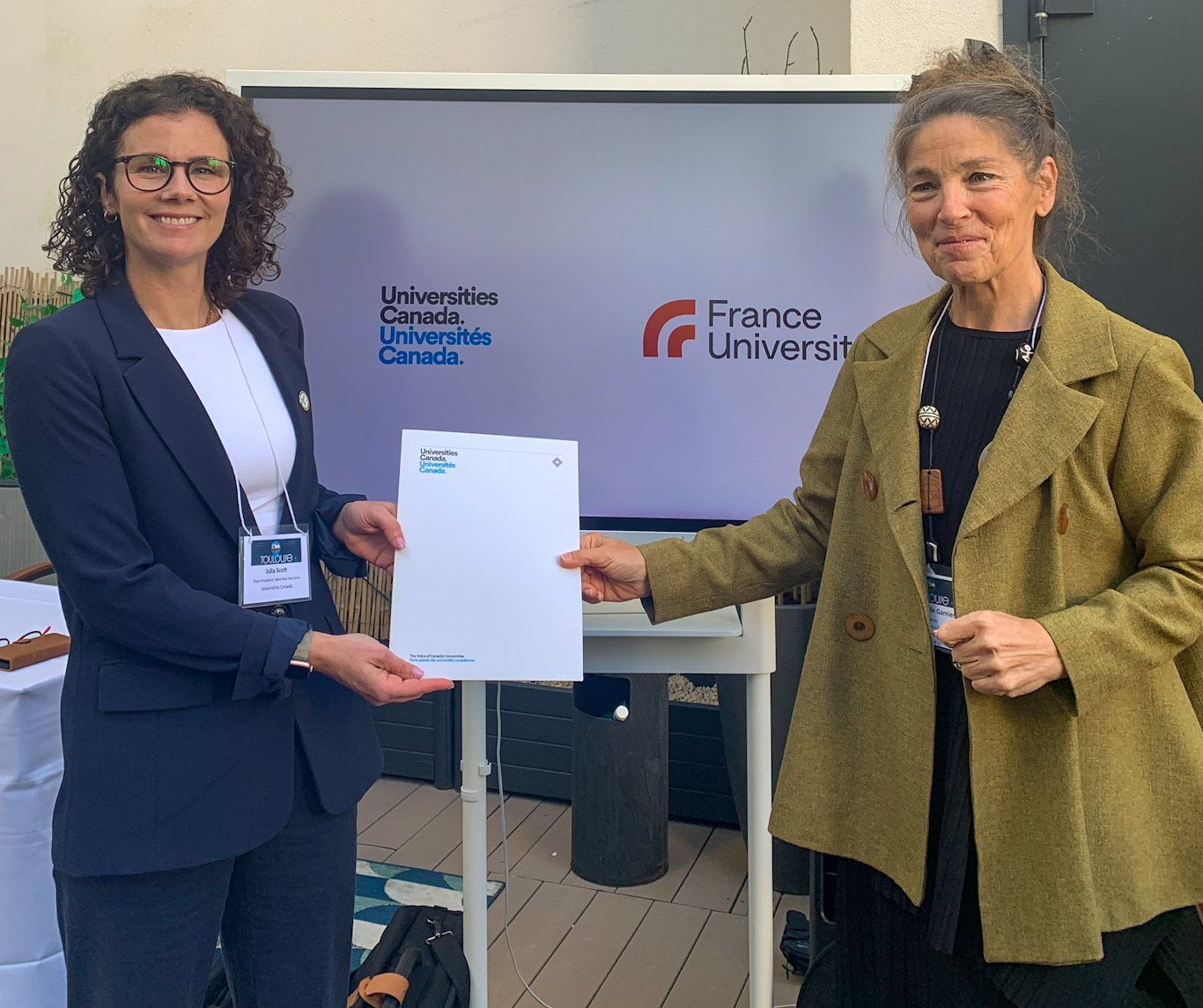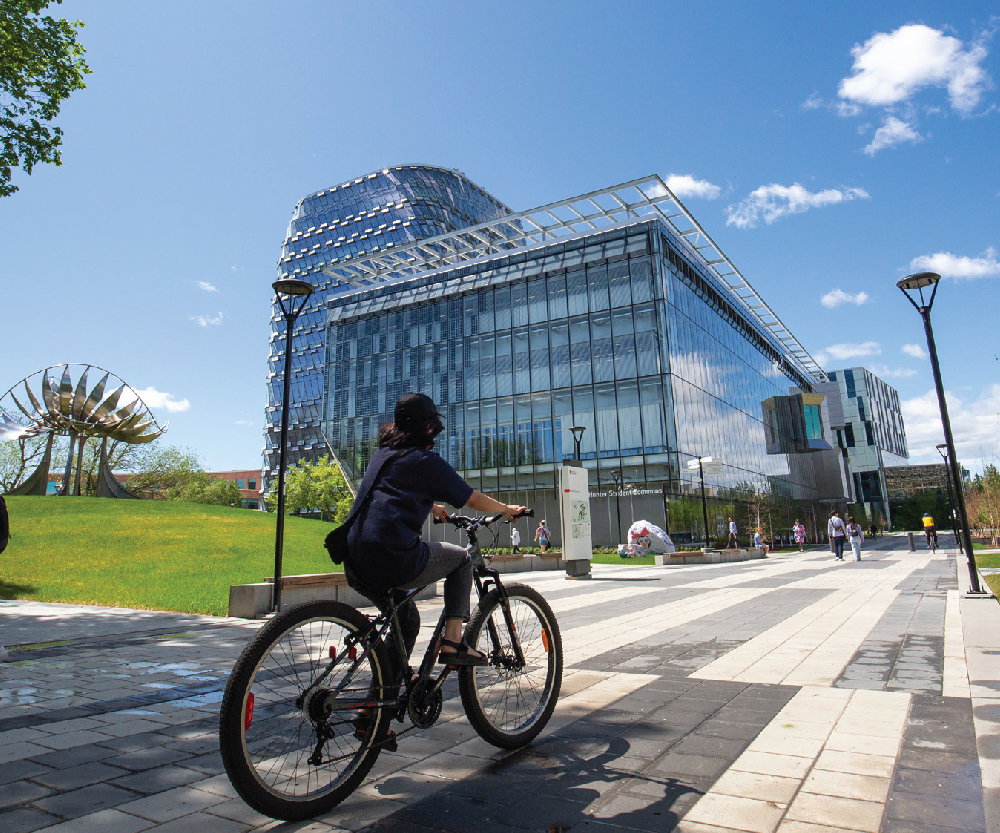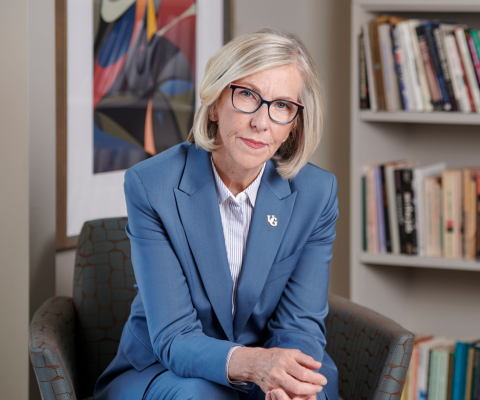How universities are helping us manage and rebuild from the COVID-19 pandemic

The COVID-19 pandemic has impacted people around the world, shutting down economies and putting health at risk for over two years. University research has been essential in helping us develop lifesaving vaccines, policies and technologies that continue to shape our lives and help us manage these challenges.
mRNA vaccine development
Thanks to years of fundamental research—research that aims to expand knowledge but does not generally have immediate practical applications—we were able to develop safe and effective vaccines against COVID-19 in record time. mRNA technology, for instance, has been decades in the making.
Dr. Pieter Cullis, physicist and biochemist from The University of British Columbia, has been recognized internationally for his contributions to mRNA technology. In the 1980s, he began studying how lipids work, a study which later led him to develop a cancer treatment using lipid nanoparticles. This research laid the groundwork for mRNA technology, which saved lives during the pandemic and has the potential to treat other diseases in the future.
Addressing vaccine hesitancy
Once a vaccine became available, one of the greatest challenges facing policymakers became how to encourage hesitant members of the public of its safety and benefits. McGill University is one university helping to inform policymakers’ approach to increasing vaccine uptake by exploring safety concerns among the vaccine hesitant and identifying populations who would most benefit from targeted outreach.
Studying long-term effects of COVID-19
As we learn to live with the virus, universities are studying its potential long-term impacts, otherwise known as ‘long COVID.’ Dr. Vett Lloyd, biology professor at Mount Allison University, along with research partners at the University of Guelph and New Brunswick’s Upper River Valley Hospital, opened an online survey just over a year ago to learn more about Canadians’ experiences with and recovery from COVID-19. The data collected should provide a roadmap to support future sufferers of long COVID.
Getting patient care back on track
Within the first three months of the pandemic, hospitals around the world cancelled 28 million elective surgeries. Western University professor, Janet Martin of Western’s Schulich School of Medicine & Dentistry, is studying the impact of this never-before-seen backlog of procedures and co-leads a 122-country project to help hospitals and policymakers get back on track.
‘Building back better’
Over two years into the pandemic, University of Saskatchewan researchers Dr. Nazeem Muhajarine and Dr. Erika Dyck are leading a large, interdisciplinary team to understand the wider social and health impacts of COVID-19 in the province. Using a social justice lens, the study examines the pandemic’s impact on mental health, substance use, food insecurity, precarious housing situations and evictions among equity-seeking groups (e.g., Indigenous citizens, new immigrants and minorities). The knowledge gained from this study will help us understand how to restructure supports for those with need and better prepare for future crises.
About Universities Canada
Universities Canada is the voice of Canada’s universities at home and abroad, advancing higher education, research and innovation for the benefit of all Canadians.
Media contact:
Lisa Wallace
Assistant Director, Communications
Universities Canada
communications@archives.univcan.ca
Tagged: Research and technology, Strong and inclusive communities
Related news
-

Canadian universities strengthen ties with France and other European nations amid Horizon Europe agreement
-

Investing in universities is an investment in Canada’s future
-

A national sustainable agriculture plan needs to include universities
-

Universities are an essential partner on the path toward Canada’s low-carbon hydrogen future